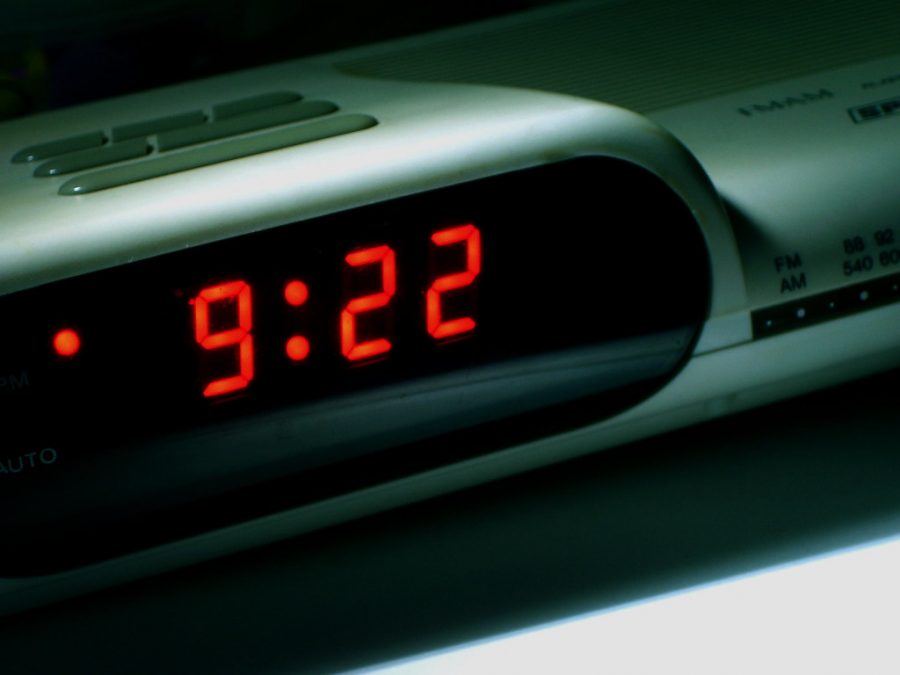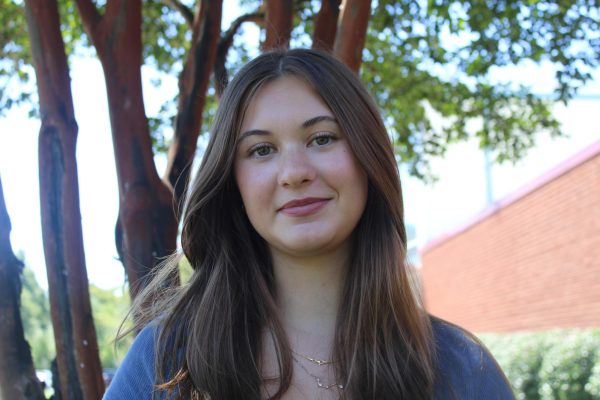Should we do away with the daylight saving time?
"Alarm Clock" by Douglas Heriot is licensed under CC BY-NC-ND 2.0
The United States changes clocks in spring and fall for daylight saving time. Looking at its pros and cons may bring up questions on whether it should be used.
November 18, 2020
Nowadays when it is about 5:30 p.m. outside it looks like it might as well be the dead middle of the night. This is, of course, because of daylight saving time (DST). The question is whether or not this time change is even necessary for the United States to continue implementing.
Daylight saving time was first adopted by Germany during World War I in order to save fuel and energy during the war effort, turning the clocks ahead one hour with the intention to decrease the use of artificial lighting. Other countries began to follow suit, including the United States.
The usage of daylight saving time in the United States has been pretty confusing and inconsistent since it was first introduced. Some years it was used and some it was not, while other years only certain states or places used it.
The fact that it has been so experimented with over the years might suggest that it isn’t that important to begin with. Now in most states across the U.S the clocks are set forward an hour in the spring and set back an hour in the fall.
Some benefits of daylight saving time are longer evenings, which are said to motivate people to get out of the house more and participate in recreational activities. Personally, I can say that DST has probably very little impact on whether or not I decide to do anything recreational outside. At least the tourism industry seems to be profiting from these lighter evenings, and things being brighter outside is said to decrease pedestrian fatalities and robberies by a little.
The cons are what consume most of my focus. Daylight saving time is bad for many people’s health, disrupting sleep patterns and a person’s natural circadian rhythm when the clocks change.
Your circadian rhythm is important because it is the cycle of physical, mental, and behavioral processes that the body naturally goes through. There are also more reports of mental health related issues, especially during the fall time change when evenings become much darker.
Changing the clocks is also costly, and studies suggest that there is a decrease in job productivity after the spring time change. It takes money to make sure technology is compliant with daylight saving time as well as manually changing clocks.
Most farmers also seem to have a dislike for daylight saving time. Agricultural work is normally fairly dependent on sunlight, and agrarian workers prefer to be in harmony with the natural surroundings and the sun’s patterns. The time changing an hour back and forth makes certain tasks more complicated for them.
In my opinion, I don’t think changing the clocks is that necessary. Less than 40% of countries even participate in daylight saving time. In the U.S, Arizona and Hawaii do not do daylight saving time at all, and it seems like they are functioning just fine alongside the other states.
From what I’ve gathered, daylight saving time came to the U.S as a result of wanting to conserve energy during the wars. First of all, it is great to save energy, but I don’t feel like that is as much of a problem as it was implemented back when a ton of countries were fighting each other in the early 1900s.
We have technology and appliances going almost all the time now, regardless of whether outside is dark or light. Whatever small amount of energy might be saved due to daylight saving time is inconsequential at this point. If its main purpose is invalid, then doesn’t that dismantle most of its merit?
Also, I completely agree that daylight saving time makes people feel a bit off. It’s always hard to adjust to the conditions outside not matching your expectation of how they should appear at a certain time. This fall, I feel like the time change has made me feel especially lethargic and disoriented, probably because this year has been tiring enough as it is.
Although there may be some positives to observing daylight saving time, I feel like overall it’s an unnecessary, outdated construct that does not do much to improve the life of the average person. Right now it’s dark, it’s cold, I’m tired and I don’t like this.





